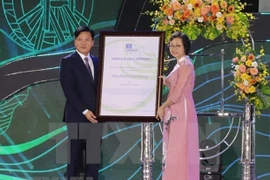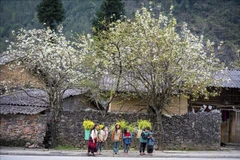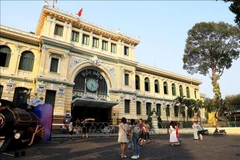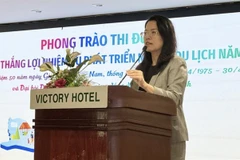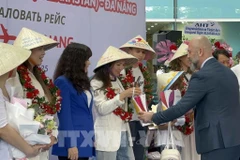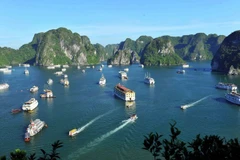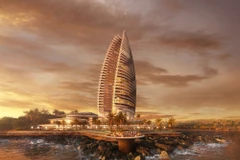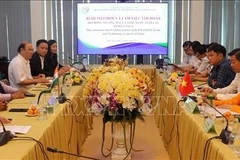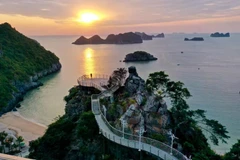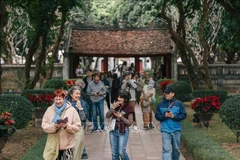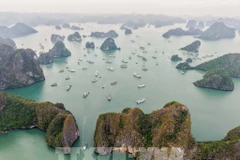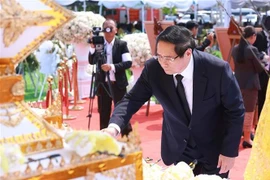Cao Bang (VNA) – The management board of the Non Nuoc Cao Bang UNESCO Global Geopark will seize opportunities to guide and support businesses in developing high-quality, sustainable tourism products that preserve heritage value while maintaining its UNESCO designation.
The upcoming Cao Bang – Lang Son expressway, set to be operational in 2026, will bring the northern mountainous province of Cao Bang – which houses the park – closer to Hanoi and major economic hubs, overcoming geographical and transport barriers. This improved connectivity, coupled with the province’s diverse landscapes, rich biodiversity, and vibrant ethnic minority cultures, presents a significant opportunity for sustainable tourism growth.
Vi Tran Thuy, director of the geopark management board, noted that demand for travel is rising, with a shift towards high-quality, experience-based tourism over mass-market, budget travel.
To capitalise on this trend, the management board is launching initiatives to support 85 partner businesses and potential members of the geopark’s network. Key efforts include the response to global environmental awareness events such as World Environment Day, Earth Day, Earth Hour, and International Day for Biological Diversity, as well as the implementation of waste management initiatives promoting segregation and treatment at source.
The board has also advised local businesses on how to incorporate indigenous heritage into new tourism experiences, while also facilitating networking and knowledge exchange among tourism operators.
Additionally, the board is stepping up the organisation of training sessions and field surveys in other popular tourist destinations like Quang Ninh, Lao Cai, and Lai Chau provinces to help the partners learn from their successful models of traditional craft preservation, sustainable and community-based tourism development.
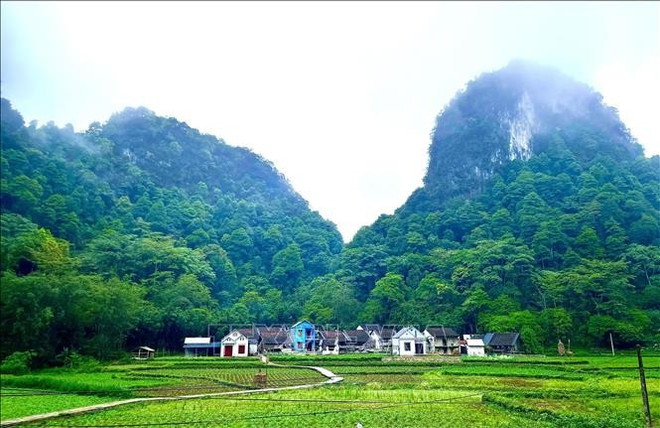
Located in the north of Vietnam, 300km from Hanoi, Non Nuoc Cao Bang covers 3,000 sq.km. It covers six districts of Ha Quang, Tra Linh, Quang Yen, Trung Khanh, Ha Lang, Phuc Hoa, and part of Hoa An, Nguyen Binh and Thach An districts. The geopark is home to nine ethnic groups including Tay, Nung, Mong, Dao and San Chay.
It is an exceptional territory which offers insights into the history of the planet across more than 500 million years through protected sites. Fossils, marine sediment, volcanic and plutonic rocks and minerals are witness to the remarkable evolution and changes of the planet over time, and they constitute an exceptional geological heritage. A land of tangible and intangible cultural heritage sites and special historical monuments, the area is also well-known for its high biological diversity with abundant endemic plant and animal species and ecosystems./.

